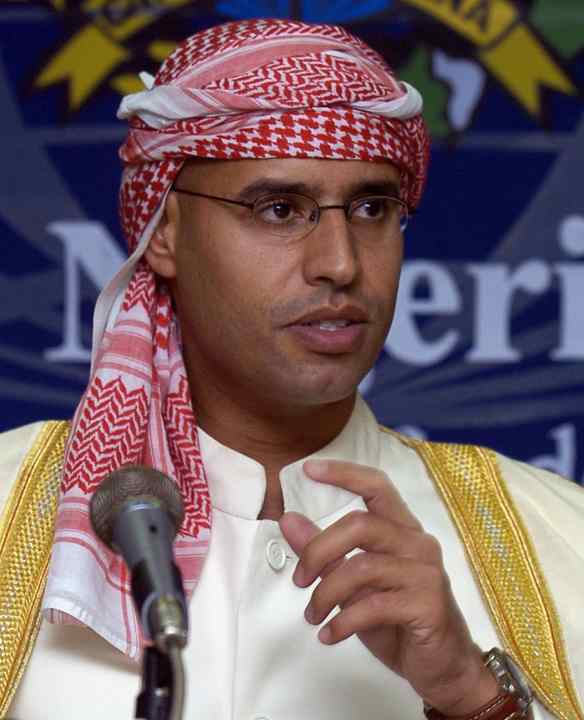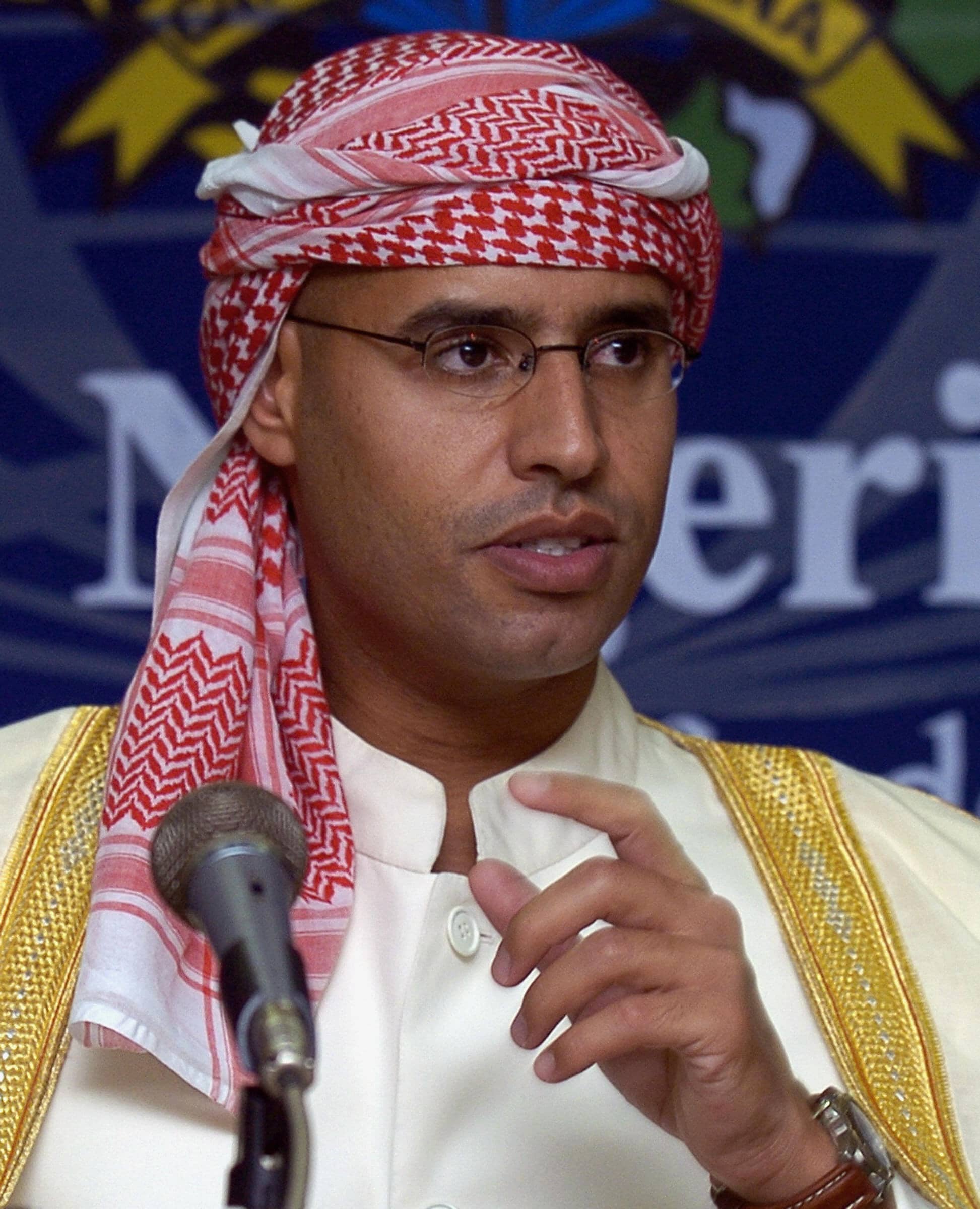Last week Saif al-Islam Gaddafi, the son and onetime heir apparent of the former dictator Muammar Gaddafi, appeared in the southern desert city of Sebha. A furtive, uneasy, and aged Gaddafi, who had been missing for several years, was dressed in robes that mirrored his father’s trademark look and if you squinted, it almost looked like Gaddafi himself had risen from his unmarked Saharan grave.
Gaddafi junior, who has been in hiding for four years, was back to take part in the Libyan presidential elections which are scheduled to take place on Christmas Eve this year. Since Libya’s last civil war formally ended with a ceasefire in October 2020, the UN has been forging ahead with a peace process to allow Libyans to hold their first national elections in seven years.
It almost looked like Gaddafi himself had risen from his unmarked Saharan grave
The UN roadmap was designed to prevent Libya’s status quo-oriented political elite, who have long acted as spoilers, from exerting influence over the electoral process. Yet UN mismanagement has seen the Libyan Political Dialogue Forum hamstrung. This has left the window open for the House of Representatives (HoR), Libya’s eastern-based parliament, to unilaterally push through a highly contested electoral framework.
Under this legislation, the first round of presidential elections on 24 December will be followed by a second round and parliamentary elections early next year, with the HoR retaining complete control over the timeline. This staggered approach means that the Libyan elite will be able to intervene and undermine the elections if things aren’t going the way they want.
Despite strong condemnation in many quarters and uncertainty over whether voting will actually take place, Libya’s powerbrokers are hedging their bets. Former ministers, businessmen, diplomats, and military commanders have thrown their hats in the presidential ring. This includes Khalifa Haftar, the controversial military commander who led the failed offensive on Tripoli in 2019-2020 and who has previously made his autocratic ambitions clear.
Yet Haftar’s presidential run is nowhere near as controversial as the candidacy of Saif al-Islam Gaddafi – the second son of Gaddafi who backed his father during Libya’s revolution. Saif was captured by an anti-Gaddafi brigade based in the city of Zintan in 2011. He was held in the mountains for years, even though the International Criminal Court (ICC) wanted to try him in the Hague on war crimes charges and a Tripoli court sentenced him to death in absentia. Gaddafi reportedly survived an assassination attempt while in prison and then in 2017 the Zintan authorities claimed they had released him, but he was not seen in public for years. There were whisperings of a Saif comeback, but nobody knew for sure whether he was dead or alive. That was until the New York Times published an interview with him this year, in which he used choice language to outline his political strategy: ‘I’ve been away from the Libyan people for ten years. You need to come back slowly, slowly. Like a striptease… You need to play with their minds a little.’
Saif has some backing from Gaddafi supporting communities in Libya, even though he has been out of politics for almost a decade. But his chances of winning the election are slim. Despite the chaos of the last ten years, the broader Libyan public has limited nostalgia for the Gaddafi era and revolutionary ideologies generally remain strong. When news of his candidacy broke, armed groups in key western cities such as Tripoli, Zawiyya and Misrata, took up their weapons, headed to the polling stations, and straight-up refused to hold December’s elections.
While Saif’s eligibility to stand as president under Libyan and international law will continue to be hotly contested, much of the anger over his candidacy is driven by moral outrage that a figure who terrorised civilians in the 2011 revolution is being allowed to run as president. Westerners might remember Gaddafi senior as being an essentially ridiculous figure, flanked by his enormous female ‘Amazonian’ bodyguards and sashaying around the UN giving 90-minute speeches about how the Israelis killed JFK. But for Libyans he was the capricious architect of a reign of terror from which no one was safe. If his son were to take over Libya once more, this would represent a return to those dark days for many.
In reality, Saif is not a presidential contestant but the plaything of powerful actors who wish to torpedo the electoral process. Those in the Libyan electoral race, such as Haftar and other regime figures, see him as someone they can co-opt for polling advantage. Outside of Libya, Russia has been suspected of grooming him for the presidency for years. In 2019 two Russian election consultants arrived in Libya with polling analysis suggesting that Saif was one of the most popular candidates in the country. They presented to Saif their slideshow: ‘Saif Gaddafi. Revival of Libya. Strategy’. In turn, Saif reportedly informed them of the kompromat he had on western politicians who had received campaign contributions from his family. It is not clear whether anything happened with the Russians and their PowerPoint. Shortly after they headed back to their apartment in Tripoli they were arrested by the then-government. But for Moscow, Saif is not a serious contender – instead he’s a ‘useful idiot’ through which they can manage and control events in the country.
Saif’s candidacy has poured gasoline on the election bonfire. Libyan and foreign actors who were already seeking to delay or derail the elections will use this as a justification for why they cannot go ahead on 24 December.
But whether or not elections occur, and whether Saif does well in them or not, the odds are against Libya achieving political or economic stability. It cannot until a consensus is reached on how best to handle the chaotic and dangerous maze of semi-sovereign institutions, roving militias, and bifurcated financial entities that is the Libyan state.







Comments